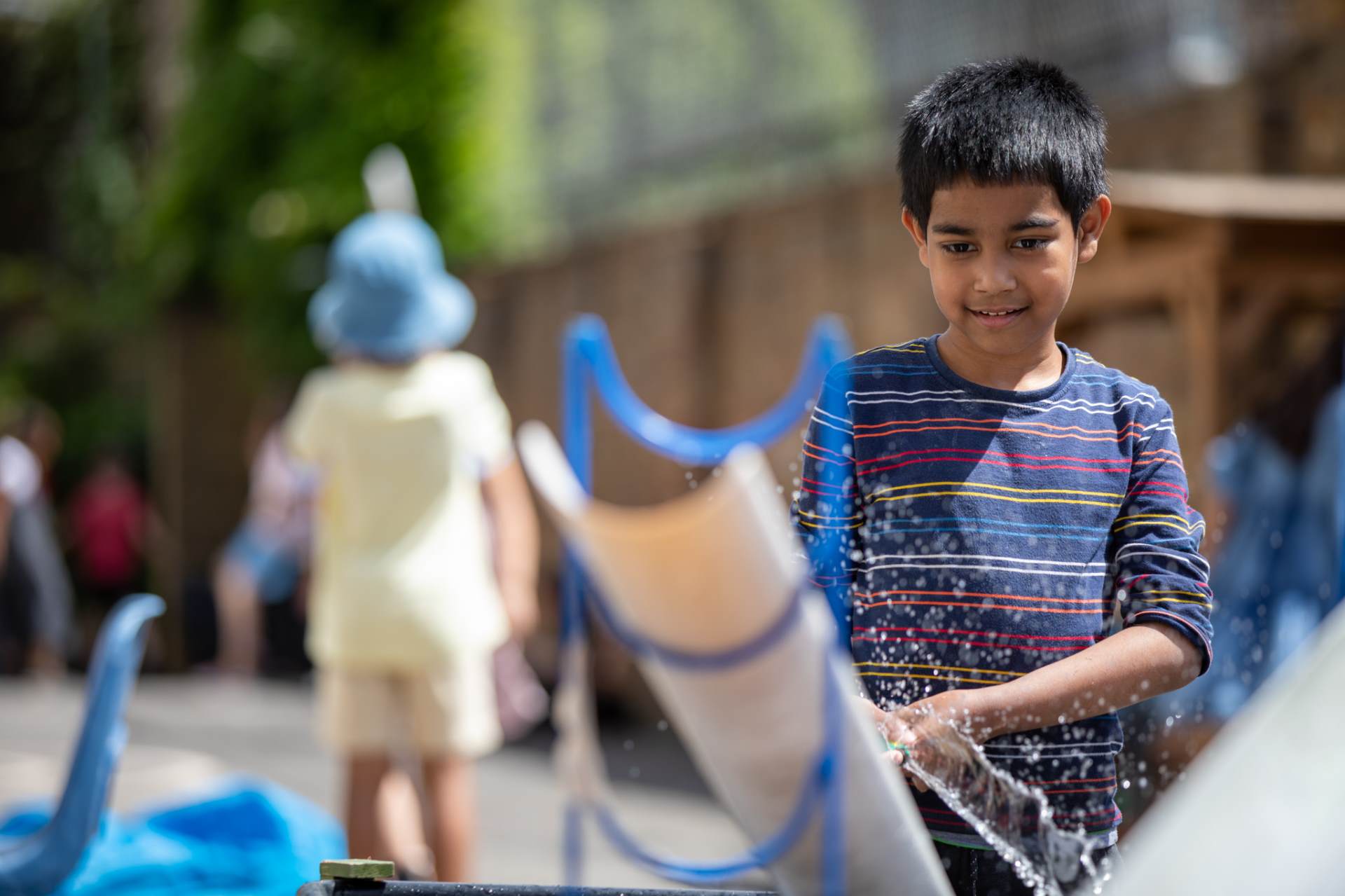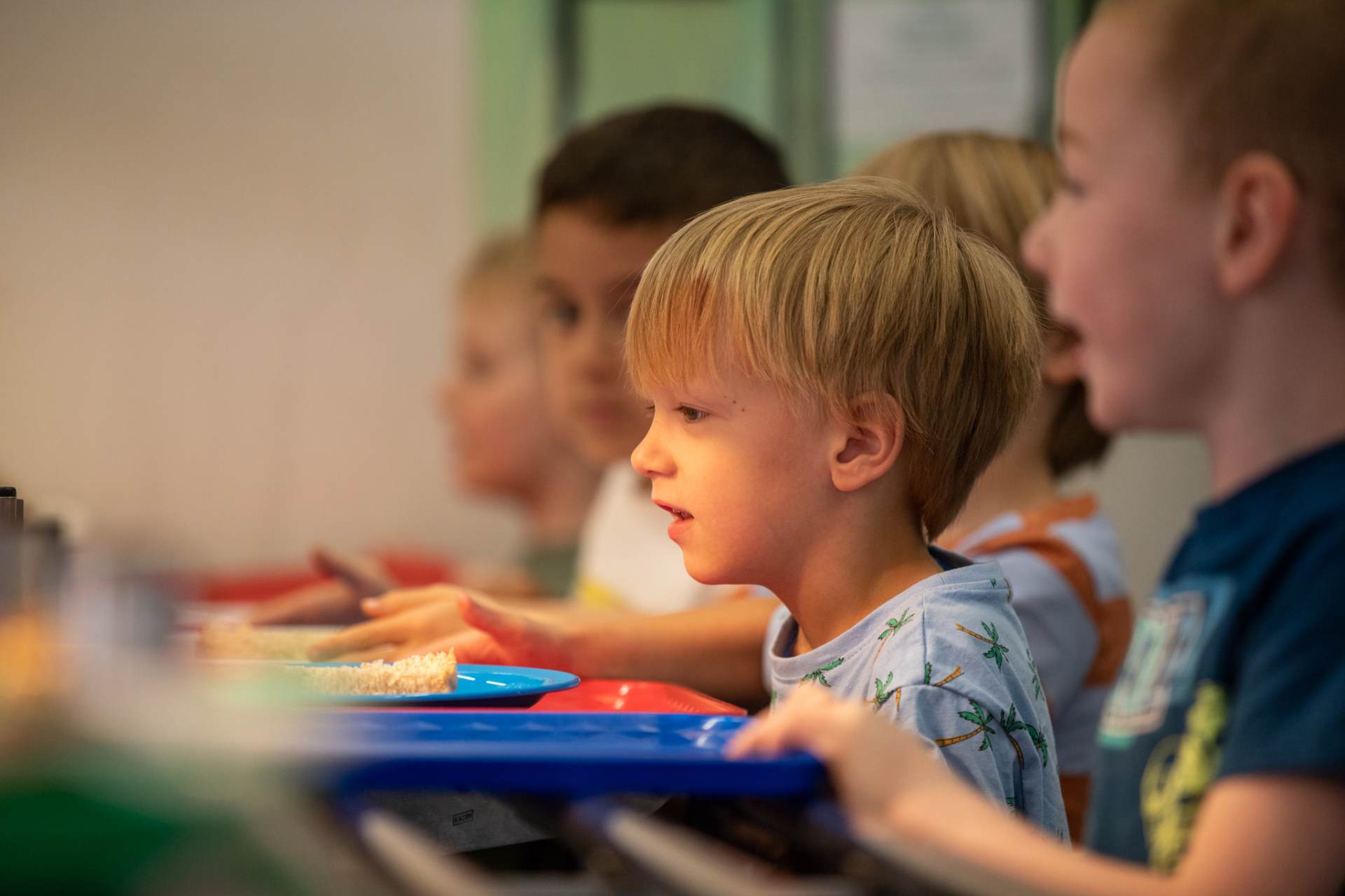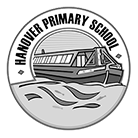How We Learn in the Lower School at Hanover
The Early Years Foundation Stage (EYFS) is the curriculum stage for children aged 0-5. In our EYFS provision at Hanover, we have one Nursery class, Ash Class, and one Reception class, Beech Class. Each class is supported by a teacher and a teaching assistant.
How do children learn in the EYFS?
Young children learn best through a balance of adult-led and child-led learning. At Hanover, the EYFS curriculum is delivered through a combination of planned learning activities and play-based learning.
The Curriculum
The EYFS curriculum is statutory, which means it must be followed in all early years settings (children aged 0 – 5) in England. We use an additional non-statutory document called 'Birth to 5 matters' to further guide our practice.
The EYFS is based on 4 important principles.
- A Unique Child: Every child is a unique child, who is constantly learning and who can be resilient, capable, confident and self-assured.
- Positive Relationships: Children learn to be strong and independent through positive relationships.
- Enabling Environments: Children learn and develop well in enabling environments with teaching and support from adults, who respond to their individual interests and needs and help them to build their learning over time.
- Learning and Development: Children develop and learn at different rates.
Learning in the EYFS framework is across seven areas, three prime areas and four specific areas. Each area has several aspects. These are listed below.
PRIME AREAS
Personal, Social and Emotional Development:
self-regulation, managing self and building relationships
Communication and Language:
listening, attention and understanding, and speaking
Physical Development: gross motor skills and fine motor skills
SPECIFIC AREAS
Literacy: comprehension, word reading and writing
Mathematics: number and numerical patterns
Understanding the World: past and present, people, culture and communities, and the natural world
Expressive Arts and Design: creating with materials and being imaginative and expressive
The Prime Areas
At Hanover, we begin by focusing on the prime areas – personal, social and emotional development, communication and language and physical development – as we know that these are the foundation of all future learning. We support our children in developing the skills they need to self-regulate their emotions and to self-govern their behaviour. We have a trauma-informed approach to behaviour management. We solve problems through talking about what has happened and what we can do to make it better. We encourage children to express their own ideas, needs and intentions and to listen to those of their friends. Each child’s voice is valued. We work with a speech and language therapist to deliver targeted support for children who need support with their communication.
We want all children to be independent in their self-care. We understand that children develop these skills by being given opportunities to make choices and to evaluate different situations for themselves. We help children to identify and understand potential risks and benefits in order to make good choices. In our woodwork area children use real tools to demonstrate how responsible and focused young children can be when given the chance to do so. Children have many opportunities for physical activity in their play; developing gross motor skills through activities such as running, climbing, balancing and building, and developing fine motor skills through activities such as mark-making, cutting, sticking and using tools.
Characteristics of Effective Learning
We know that this way of learning creates confident, independent and creative learners. Through following their own interests and learning through play, children develop the characteristics of effective learning. Children at Hanover are playing and exploring all the time, investigating their own ideas and having a go at new things. They learn actively and are highly motivated. They seek out challenges, take risks and aren’t afraid to make mistakes. They think critically and choose their own way of doing things. They are creative and imaginative and they are not afraid to have different ideas. These characteristics provide the foundation for all of their learning in the future.
Our Planned Curriculum
In Nursery and Reception, each half term activities and carpet sessions are planned around a theme or ‘topic’ which links to an area of learning within the EYFS curriculum. This ensures that all aspects of the curriculum are covered across the year and that children are exposed to a broad and balanced range of learning experiences during their time in the EYFS at Hanover. Our topic planning identifies potential learning outcomes and activities. These are then adapted to the specific needs and interests of each child.
|
Autumn term |
Spring term |
Summer term |
||||
|
Nursery |
Families & Friends: All about me |
My world: Colour |
Traditions: Rhymes & recipes |
Where we live: Journeys |
Growing: Looking after plants and animals |
Houses and homes: Our homes and animal homes |
|
Reception |
Families & Friends: Belonging |
My world: Light and dark |
Traditions: Festivals & food |
Where we live: Near and far |
Growing: The life cycles of plants and animals |
Houses and homes: Now and in the past |
Maths in the EYFS
Children in Nursery and Reception have a daily maths session following the NCETM curriculum, where the children cover the foundations of mathematical knowledge through engaging, age-appropriate activities. We recognise that young children also develop their mathematical understanding through their experiences and through identifying their own mathematical problems in their play, supported and extended by the adult.
English in the EYFS
Children are taught to read and write using phonics, which provides them with the technical skills to ‘decode’ words in a systematic, structured way. Children in Nursery and Reception have daily phonics sessions following the Fisher Family Trust’s ‘Success for All’ curriculum. In Reception, the reading book that children bring home each week focuses on the sound that they have been learning in phonics. We offer a phonics workshop for parents to attend in the Autumn term of each year to enable parents to support their children with reading and writing at home.
We follow the ‘Talk for Writing’ curriculum for the teaching of English across the whole school. Each half term, English lessons focus on a high quality text which the children get to know really well through oral story-telling and drama. We also use the children’s interests and shared story times to promote a love of reading, encouraging children to bring in their favourite books and poems from home to read with their class. We use ‘story scribing’ to introduce early writing skills. Children are encouraged to make up their own stories, which are acted out at the end of the day by the children. Initially, the adult scribes for the child who then slowly takes over the writing themselves as they learn how to write new sounds and words.
Music in the EYFS
Children in Nursery and Reception have a music session with a specialist teacher once a week.
Our Child-led Curriculum
At Hanover, we believe that how children learn is as important as what they learn. We know that children learn best when they are engaged and involved in an activity and that the highest levels of involvement are seen in children during child-initiated play. What will captivate a child cannot be planned for in advance. Finding those moments of high involvement requires giving children time and space to explore their own ideas and interests through play. Therefore, in our EYFS, children have two daily sessions of uninterrupted child-initiated play, where each child chooses what they want to do, one in the morning and one in the afternoon.
The Role of the Adult
Teaching happens during play through thoughtful adult interactions where a ‘teachable moment’ has been identified in a period of high involvement. Teachers therefore plan ‘in the moment’ and scaffold the next steps for that child there and then. This could be suggesting an idea, asking a question, introducing new words, providing equipment or modelling a skill, for example. Through sharing their play, the adults in the setting really get to know and develop strong relationships with each child. They have a detailed understanding of each child’s needs, interests and how to support each child as an individual. Every term each child in Nursery and Reception has a focus week where their interactions are recorded to create a personal learning journey which is shared with parents or carers.
Workshop Environment
We have a workshop-style environment inside and outside, with zoned areas for different types of activity. The children select what they want to do in each area. Resources are varied and open-ended to support high quality learning. They are accessible to the children at all times and stored with visual labels to promote independence and autonomy. Children have opportunities to try new things, take risks and to challenge themselves. They are also able to return to activities time and time again to develop and extend their understanding. Children have access to the outside areas throughout the day, every day, whatever the weather.
The Daily Routine
Here is the daily routine in Nursery* and Reception:
|
8:50 – 9:00 |
Self-registration and settling time |
|
9:00 – 9:10 |
Carpet time - Welcome |
|
9:10 – 9:40 |
Carpet time - Maths |
|
9:40 – 11:00 |
Child-led learning |
|
11:00 – 11:30 |
Carpet time - Phonics (The morning children are collected from nursery at 11:30) |
|
11:30 – 12:00 |
Nursery: lunch in the nursery (for the full-time children) Reception: lunch in the dining hall (The afternoon children arrive at nursery at 12:00) |
|
12:00 – 12:30 |
Carpet time - Reading or English |
|
12:30 – 2:50 |
Child-led learning |
|
2:50 – 3:10 |
Carpet time - learning from the children’s interests |
|
3:10 – 3:25 |
End of the day routines – songs, stories or circle time |
|
3:25 |
Doors are opened for parents to collect children |
|
3:30 |
End of the school day |
*The length of carpet sessions will be shorter in Nursery than in Reception to reflect the developmental stage of the children and the focus of the sessions will alternate so that the morning and afternoon children participate in all the areas of learning.
Transitioning to Year 1
When children reach Year 1, they are developmentally ready for a more structured style of learning. We use the Autumn term to help the children to transition to the new balance of adult-led and child-led learning time. Children are still given time to follow their interests and learn through play but they also have subject-based lessons across the curriculum. Our topic-based curriculum, which continues throughout our Upper School for Key Stage 2, focuses on inquiry-led learning. Each topic begins with a question, such as ‘What is a city?’ or ‘Why do people explore the world?’, which is explored over a half term across the different subject areas.
The Early Years Foundation Stage (EYFS) is the curriculum stage for children aged 0-5. Our Nursery and Reception classes are in the EYFS.

